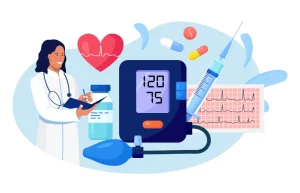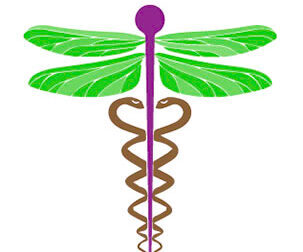Understanding High Blood Pressure: The Hidden Connection to Insulin Resistance and Salt
High blood pressure affects millions of Americans, but conventional wisdom about salt restriction may be missing the bigger picture. Recent research reveals that over 95% of Americans are metabolically inflexible, with insulin resistance serving as a primary driver of high blood pressure and related cardiovascular complications.
The Real Culprit Behind High Blood Pressure
While traditional medical advice focuses on reducing sodium intake to manage high blood pressure, the underlying mechanism is more complex. The conventional theory suggests that excess sodium causes water retention, increasing blood volume and forcing the heart to work harder. However, this explanation oversimplifies the root cause.
The real issue isn’t excess sodium itself, but rather sodium retention caused by elevated insulin levels. When someone develops insulin resistance, their body produces excess insulin, which activates aldosterone—a hormone that signals the kidneys to retain sodium. This sodium retention then draws in water, increasing blood volume and elevating high blood pressure.
Why Low-Salt Diets May Backfire
Drastically reducing salt intake might provide temporary relief from high blood pressure, but it can create long-term problems. When sodium levels drop too low, the body activates rescue mechanisms that ultimately worsen the condition. These include:
- Increased vasoconstriction (narrowing of blood vessels)
- Elevated stress hormone production
- Depletion of essential electrolytes like potassium and magnesium
- Activation of the sympathetic nervous system
This stress response can paradoxically increase high blood pressure over time, making strict salt restriction counterproductive.
The Importance of Electrolyte Balance
Managing high blood pressure requires attention to all electrolytes, not just sodium. The sodium-to-potassium ratio is particularly crucial. Potassium helps relax arterial walls and naturally lowers blood pressure. Health experts recommend consuming five times more potassium than sodium, with daily potassium intake ideally around 4,700 mg.
The best sources of potassium include ripe fruits like watermelon, oranges, apples, and tangerines. Magnesium and calcium also play essential roles in blood pressure regulation, making a balanced approach to electrolyte intake vital for managing high blood pressure.
The Hidden Role of Estrogen
Estrogen dominance represents an often-overlooked factor in high blood pressure. High estrogen levels interfere with carbon dioxide production, reducing blood oxygen levels and contributing to elevated blood pressure. Additionally, estrogen can suppress progesterone production—a hormone that helps regulate blood sugar and reduce inflammation.
Like linoleic acid found in processed foods, estrogen draws water into cells, increasing blood pressure. This connection explains why some individuals struggle with high blood pressure despite maintaining reasonable salt intake.
Natural Approaches to Blood Pressure Management
Effective high blood pressure management should address insulin resistance and metabolic flexibility. Key strategies include:
Dietary Changes: Limit linoleic acid consumption to under 5 grams daily by avoiding processed foods. Focus on whole foods, grass-fed meats, organic dairy, and healthy fats like coconut oil and grass-fed butter.
Carbon Dioxide Therapy: Since CO2 is the body’s primary vasodilator, increasing CO2 levels through methods like drinking carbonated water or taking baking soda can help lower high blood pressure.
Exercise: Isometric exercises (static muscle contractions) prove most effective for reducing high blood pressure, outperforming traditional aerobic exercise.
Supplementation: Optimize vitamin D levels, as deficiency correlates with arterial stiffness and hypertension.
The Bottom Line
Managing high blood pressure requires a comprehensive approach that addresses insulin resistance, electrolyte balance, and hormonal factors rather than simply restricting salt. By understanding these interconnected mechanisms, individuals can make more informed decisions about their cardiovascular health and work toward sustainable high blood pressure management through lifestyle modifications that target root causes rather than symptoms alone.
Source: https://www.mercola.com/
Read more on how we can help you get your health back here!

